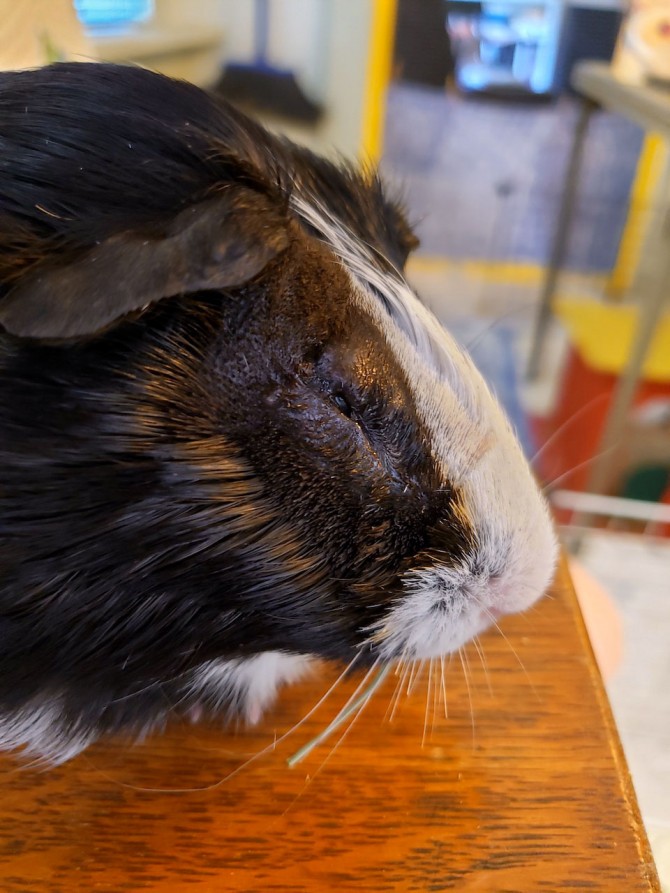When Chris Dunham and Melissa Travis Dunham of Ithaca adopted a guinea pig this summer, they named him Odin after the one-eyed Norse god due to his diagnosis of eyelid agenesis, a congenital disease more commonly seen in cats.
Agenesis occurs when the animal is essentially missing its eyelid, often resulting in damage to the cornea since the animal can’t fully blink or distribute tears.
“There are a few long-term options for treatment,” said James Morrisey, D.V.M. ’92, section chief of exotics at the Cornell University Hospital for Animals (CUHA). Odin was the first case of eyelid agenesis Morrisey had seen in a guinea pig during his time at CUHA.
Odin’s surgery at the Cornell University Hospital for Animals went well, and his eye is completely healed.
Odin’s unique diagnosis was initially brought to Cornell’s attention when the shelter medicine service examined him at the SPCA of Tompkins County, which rescued Odin’s mother and her two pups. Travis Dunham has been involved with the SPCA since 2005 and serves on its board of directors.
“When we made the decision to seek foster care, the Dunhams were our natural first choice,” said Dr. Erin Henry, an instructor with Maddie’s Shelter Medicine Program at Cornell. “They are incredible volunteers for the shelter and our go-to individuals when we have guinea pigs in need of foster for medical care.”
The Dunhams also had a herd of four other male guinea pigs, so Odin would be part of a community; guinea pigs thrive when they live in groups.
After complications following initial surgery to remove a portion of the eyelid, doctors opted in August to do an enucleation – a complete removal of the eye.
After some early post-op concern, Odin’s recovery is now complete. And although he does occasionally bump into walls during playtime with his herd, his prognosis for a high quality of life is positive.
Read the full story of Odin the guinea pig on the CVM website.
Melanie Greaver Cordova is managing editor at the College of Veterinary Medicine.








